Alcohol addiction treatment programs aim to help those struggling with alcoholism recover and lead a fulfilling life. However, long-term alcohol abuse can often result in severe health consequences, including a condition known as wet brain syndrome. This condition significantly impacts the brain, leading to deficits in cognitive function, memory, and motor skills. Exploring wet brain meanings and available treatment options can help you or a loved one get the proper care and recover.
If you or someone you know is experiencing symptoms of wet brain syndrome or alcohol addiction, don’t hesitate to contact Athens Addiction Recovery Center to learn about the range of support we offer. Begin your journey to a fulfilling life today with the support and care of our team. Call 844.959.4998 today to learn how we can help you take that first step toward lasting relief.
What Is Wet Brain Syndrome?
What is wet brain, exactly? Wet brain syndrome is a form of brain damage caused by alcohol abuse. Specifically, it is a combination of two conditions: Wernicke encephalopathy and Korsakoff syndrome. Wernicke encephalopathy is a neurological disorder caused by a deficiency of vitamin B1 (thiamine). Korsakoff syndrome is a memory disorder that often occurs as a result of Wernicke encephalopathy.
Wet brain syndrome is most commonly seen in those who have a history of heavy alcohol abuse. Alcohol inhibits the body’s ability to absorb and utilize thiamine properly, which can lead to a deficiency. Over time, this deficiency can cause damage to the brain cells, leading to the development of wet brain syndrome.
Symptoms of Wet Brain Syndrome
The symptoms of wet brain syndrome can vary depending on the severity of the condition. They are often not apparent early, making identifying risk factors essential. They may include:
- Confusion and disorientation
- Memory loss
- Difficulty with coordination and movement
- Loss of muscle control
- Vision changes
- Hallucinations and delusions
In severe cases, wet brain syndrome can lead to permanent brain damage or even death.
It is crucial to note that early symptoms of wet brain syndrome can often be reversed with thiamine treatment if caught early. However, if left untreated, Korsakoff’s psychosis can result in permanent damage to the memory system, impacting an individual’s ability to lead a fulfilling life.
Treatment for Wet Brain Syndrome
Treatment for wet brain syndrome involves supplementing vitamin B1 to address the thiamine deficiency and improve neurological function. In severe cases, hospitalization may be necessary to manage any complications that may arise.
Additionally, individuals experiencing wet brain syndrome may benefit from therapy to address related mental health concerns. Athens Addiction Recovery Center provides a range of evidence-based therapies, including cognitive-behavioral therapy (CBT), dialectical behavior therapy (DBT), and mindful-based stress reduction (MBSR) to address psychological symptoms associated with wet brain syndrome.
How Athens Addiction Recovery Center Can Help
At Athens Addiction Recovery Center, our approach to treating alcohol addiction and related conditions like wet brain syndrome is holistic and individualized. We offer outpatient, PHP, and IOP programs to meet clients’ unique needs. Our professional program is tailored to meet the needs of those aged 40-54, while our LGBTQ-friendly approach recognizes and serves the needs of all individuals. In addition to traditional therapies like CBT and DBT, we offer experiential therapies like adventure therapy and yoga therapy to promote physical and emotional healing.
Contact Athens Addiction Recovery Center for Alcohol Addiction Treatment Today
If you or a loved one is struggling with alcohol addiction or the symptoms of wet brain syndrome, don’t hesitate to contact us at Athens Addiction Recovery Center. Our compassionate team is here to help you on your journey to lasting recovery.
Contact us today at 844.959.4998 or online to learn more about our alcohol addiction treatment program and how we can help you achieve lasting recovery.

